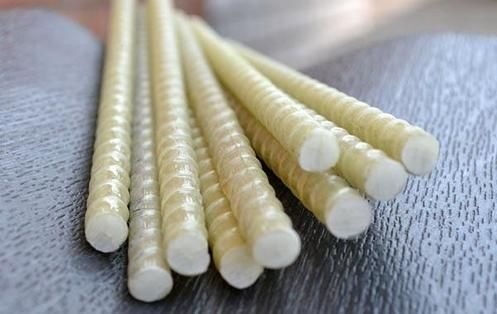
Why the U.S. Infrastructure Bill is Boosting GFRP Rebar Adoption
The $1.2 trillion U.S. Infrastructure Investment and Jobs Act (IIJA) is transforming America’s roads, bridges, and utilities—and GFRP (Glass Fiber Reinforced Polymer) rebar is emerging as a key beneficiary. With unprecedented funding for corrosion-resistant materials, the bill is accelerating the shift from traditional steel rebar to advanced composites like GFRP.
At Titan Technovators,https://titantechnovators.com/ we’re at the forefront of this change. In this blog, we explore how the infrastructure bill is driving GFRP rebar adoption and why engineers, contractors, and project owners should take note.
How the Infrastructure Bill Supports GFRP Rebar
1. Direct Funding for Corrosion-Resistant Materials
The IIJA mandates $550 billion in new spending, with significant allocations for:
Bridge replacements ($40 billion) → GFRP rebar’s corrosion resistance extends lifespan in de-icing salt environments.
Resilient coastal infrastructure ($17 billion) → Ideal for seawalls, piers, and flood barriers.
Clean water/wastewater systems ($55 billion) → Chemically resistant GFRP prevents degradation in treatment plants.
Key Provision: The bill prioritizes materials that “maximize service life”—a clear advantage for GFRP over corrosion-prone steel.
2. “Buy Clean” Policies Favor Sustainable Materials
The bill’s Buy Clean Initiative requires federally funded projects to:
✔ Use low-carbon construction materials.
✔ Prioritize products with Environmental Product Declarations (EPDs).
Why GFRP Wins:
50-70% lower carbon footprint than steel rebar.
Longer lifespan reduces replacement emissions.
Titan Technovators’ GFRP rebar meets ISO 14025 EPD standards.
3. State-Level Incentives Amplify Adoption
Many states are using IIJA funds to offer:
Grants for corrosion-resistant materials.
Tax credits for sustainable infrastructure.
Fast-tracked approvals for projects using innovative materials like GFRP.
Example: California’s SB 1 program now offers bonuses for bridges using non-corrosive reinforcement.
3 Projects Where GFRP Rebar Shines Under the IIJA
1. Coastal Highway Bridges
Challenge: Saltwater corrosion causes steel-reinforced bridges to fail in 30-50 years.
GFRP Solution: Immune to salt damage, extending lifespan to 75+ years.
Funded Example: $2.1 billion Brent Spence Bridge Corridor (KY/OH) uses GFRP in splash zones.
2. Wastewater Treatment Plants
Challenge: Hydrogen sulfide and chemicals corrode steel rebar.
GFRP Solution: Resists acids, reducing maintenance costs by up to 60%.
Funded Example: $500 million DC Water Clean Rivers Project.
3. Renewable Energy Infrastructure
Challenge: Offshore wind turbine foundations need lightweight, non-conductive reinforcement.
GFRP Solution: Perfect for turbine bases and hydrogen fuel stations.
Funded Example: $3 billion Atlantic Offshore Wind Ports.
What This Means for Your Projects
For Engineers & Designers:
Specify GFRP rebar to qualify for IIJA funding and green incentives.
Leverage Titan Technovators’ ASTM-compliant solutions for guaranteed compliance.
For Contractors:
Reduce long-term costs with less maintenance and replacements.
Speed up projects with lightweight, easy-to-install GFRP.
For Project Owners:
Future-proof assets against rising climate risks.
Meet sustainability goals while accessing federal grants.
Titan Technovators: Your Partner in IIJA-Compliant GFRP Rebar
We help clients navigate IIJA opportunities with:
✅ ASTM-certified GFRP rebar (D7957, D7205).
✅ EPD documentation for “Buy Clean” compliance.
✅ Technical support for design and funding applications.
Conclusion
The U.S. Infrastructure Bill isn’t just repairing bridges—it’s modernizing construction standards. With GFRP rebar’s corrosion resistance, sustainability, and cost-efficiency, it’s poised to become the reinforcement material of choice for IIJA-funded projects.
Ready to Build IIJA-Compliant Infrastructure?
📞 Contact Titan Technovators for certified GFRP rebar solutions today!
#InfrastructureBill #GFRPRebar #SustainableConstruction #CivilEngineering #TitanTechnovators


